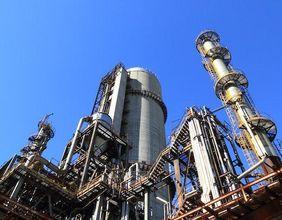Summary
- The financial institutions have already seen losses and financial crunch in the last few months due to this pandemic
- Lloyds Bank Plc has been dithering on the stock exchanges since the outbreak of Covid-19
- Lloyds Banking Group is considered a safe stock in terms of returns, though its price fell quite drastically in the last few months
The global recession of 2008–10 was triggered by a shock in the banking system. Major economic downturns in the past 50 years, such as stock-market crashes and debt defaults, had financial-system origins. However, the current recession has been triggered by a global pandemic, governmental and societal responses to it, and the resulting shocks to supply and demand. But that has also affected the banking sector. The industry has already felt severe effects from the crisis, with more to come.
The financial institutions have already seen losses and financial crunch in the last few months due to this pandemic. Investors’ sentiments are at an all-time low, and it is also becoming evident how difficult it is going to be for banks all over the world to maintain good assets and good earnings. Due to the shutdowns and income slowdown, many repayments of loans may cease leaving the banks dry. Their assets have now become a big risk. The effectiveness of a bank-supported economic recovery will, however, depend on banks’ resilience and health. Losses from loan defaults and increases in risk-weighted assets will deplete banks’ capital.
Lloyds Banking Group PLC (LON:LLOY)
Lloyds Banking Group PLC is one of the UK's leading groups, providing banking and financial services. It mainly focuses on activities such as retail, general insurance, commercial and corporate banking and pension and investment services. Lloyd is the largest of the UK's retail bank, headquartered in London, UK. It is listed on both the London Stock Exchange and the New York Stock Exchange.
Lloyds Bank Plc has been dithering on the stock exchanges since the outbreak of Covid-19, especially when the lockdown was imposed and it became evident that the economy is going to be severely impacted due to the pandemic. Barring some brief upticks, the stocks of Lloyds Bank Plc have been hovering in a range of 28-31 pence in last almost six months. It’s not only the weak overall scenario of the industry but the bank’s own hitches like bad debts, interest rate sensitivity and low credit off-take that have been restricting any upward price movement as compared to Barclays and Virgin Money, who have made a sound recovery.
What are the factors that have been affecting the performance of Lloyd Banking Group in the last 6 months?
Despite the fact that Lloyds Banking Group is considered a safe stock in terms of returns, its price fell quite drastically in the last few months. There could be a number of reasons behind this bear run of the stock, such as:
Lloyd cancelled the Dividend Payout Because of the Outbreak of Coronavirus- Some of the prominent bank of the United Kingdom, such as Barclays, HSBC, Royal Bank of Scotland, Standard Chartered as well as Lloyds had agreed to cancel the dividend for 2019, giving the banks an additional financial cushion worth approximately £8 billion in total, in order to increase lending to businesses and households during the Covid-19 lockdown.
Banks certainly have their hands full in the light of the novel coronavirus outbreak. Borrowers and businesses are facing job losses, slowed sales, and declining profits as the virus continues to spread around the world. Banking customers are seeking financial relief.
Charges of Racism- Banking Institutions in the United Kingdom had been told to inspect their association and connection to the slave trade in history. Reportedly, Greene King and Lloyds's of London had announced to make donations as a part of the reparation. In the eighteenth and nineteenth century, Lloyd had been involved in the slave trade. But now, it is identifying black and minority ethnics in order to provide financial support to charities in order to promote their opportunities and retain and develop their talents. The bank is intending for creating a culture in which the market can flourish. Also, it intends to increase the number of black staff in senior roles from only 0.6 per cent to at least 3 per cent over the next four years, as part of a “race action plan” rolled out weeks after Black Lives Matter protests began in the UK. Lloyds will be recruiting about 168 more black employees into senior roles by 2024. Currently, the bank employs only about 40 black staff across its 7,000 senior management team. This pledge will raise total to 210 staff.
Announcement Regarding the Stepping Down of the Chief Executive- The chief executive of Lloyds Banking Group, António Horta-Osório, is supposed to step down from his position in June 2021 after serving for a long tenure of a decade.
Case of Forging Signatures' in Repossession Cases- Representatives of a number of UK banks were suspected of forging signatures on court documents in repossession cases. The allegations relate to UK Asset Resolution and loans from Northern Rock, Bradford & Bingley, Mortgage Express, as well as Lloyds Banking Group, though the bank has strongly denied the claims.
Financial Highlights
The collapse of profits by 95 per cent in Q1 2020- Initially, the prices were weighed down by the weak earnings after the Lloyds Banking Group witnessed a plunge in the profits for the first quarter of 2020, down 95 per cent resulting from £1.4 billion charge to cover a surge in bad debts linked to the Covid-19 outbreak. The costs wiped out the pre-tax profits, which collapsed year-on-year from £1.6 billion to just £74 million for the three-month period to March. Lloyds was also expected to set aside around £1.1 billion worth of impairment.
Lloyds Bank PLC’s half-year to 30 June 2020 results got drastically impacted by the coronavirus pandemic. Total income decreased by 10 per cent to £7,766 million, while the group was in red, posting a loss before tax of £290 million from a profit before tax in the half-year to 30 June 2019 of £2,707 million. NII (Net interest income) declined by 7 per cent to £5,614 million in the half-year, though operating expenses also decreased by 17 per cent, to £4,431 million.
Stock Performance
Lloyds Banking Group PLC (LON:LLOY) stocks were trading at GBX 26.72 on 7 September 2020 (GMT 14:01 PM), down by 0.84 per cent from its previous close of GBX 26.94. The company's 52 weeks low/high range was reported at GBX 26.21/67.25. It was having a market Cap of £19,070.28 million. The daily traded volume at the time of reporting was 73,433,356.
Conclusion
The above-mentioned reasons are probably some of the factors that have contributed to the company’s share price downfall and the loss of the shareholders’ wealth and confidence in the stock, and hence, it remains to be seen if the company would be able to post a recovery on the London Stock Exchange market. However, the business model and financial strength of the Group will ensure that it remains a favourite for the investors.





